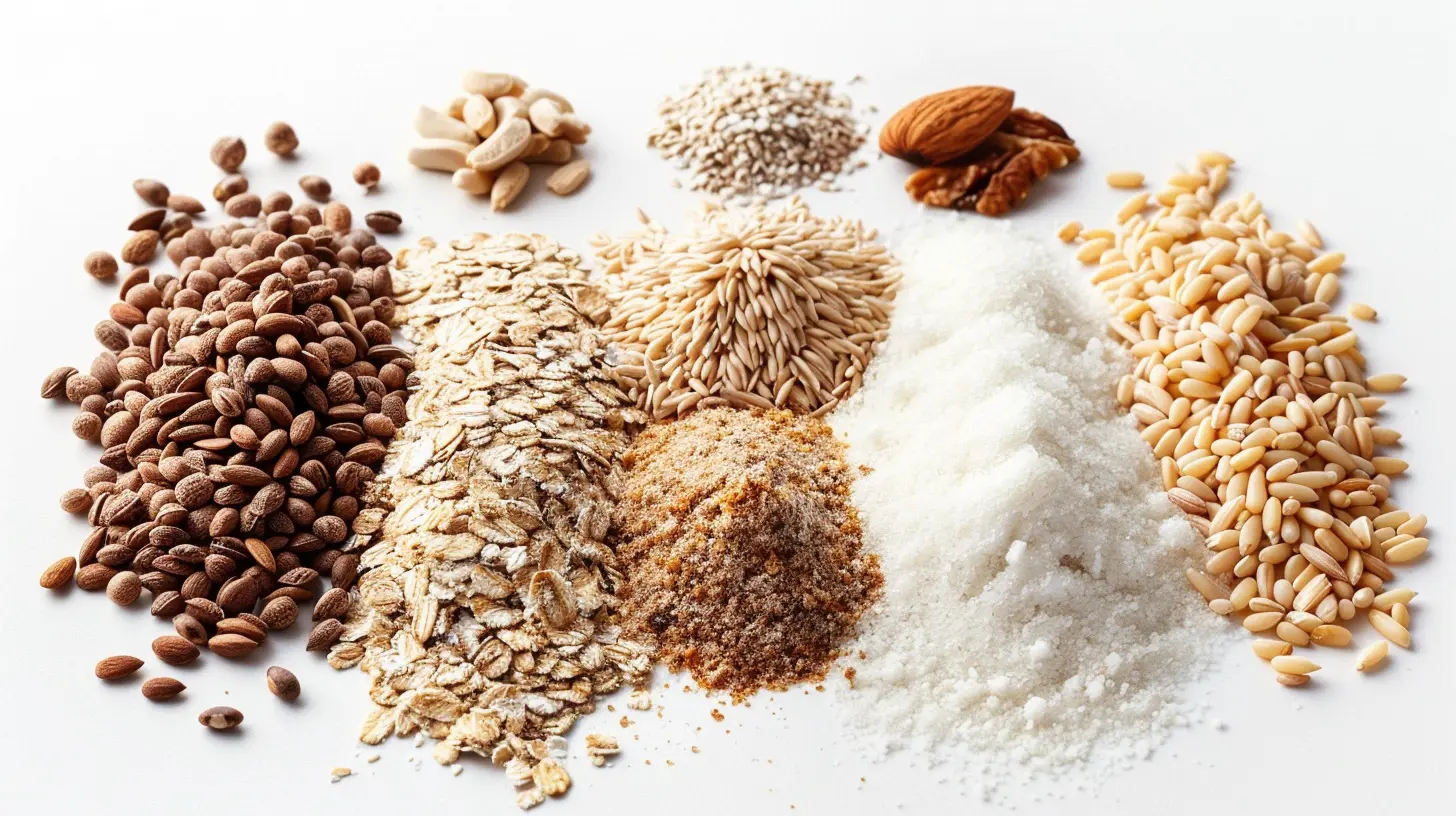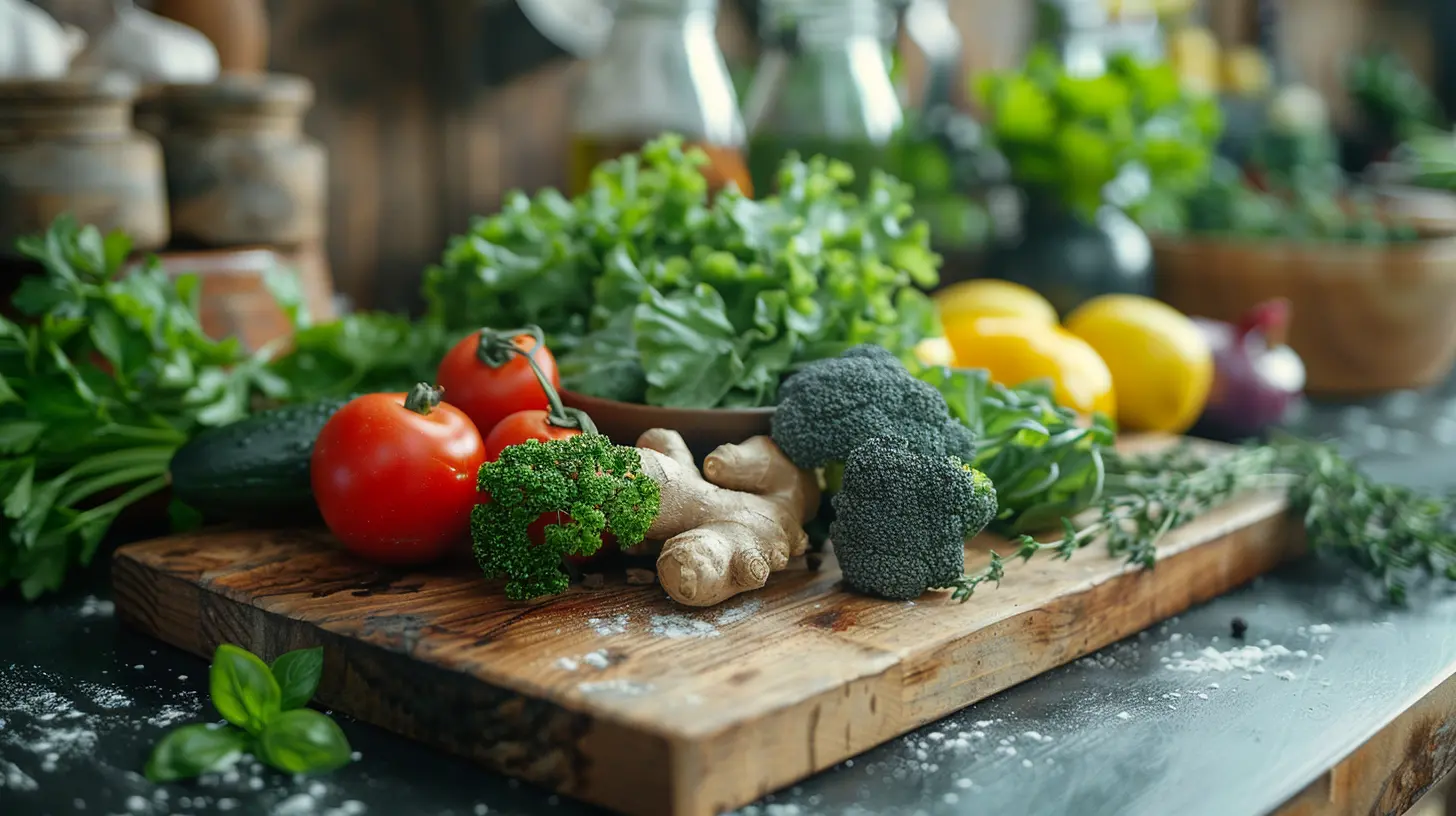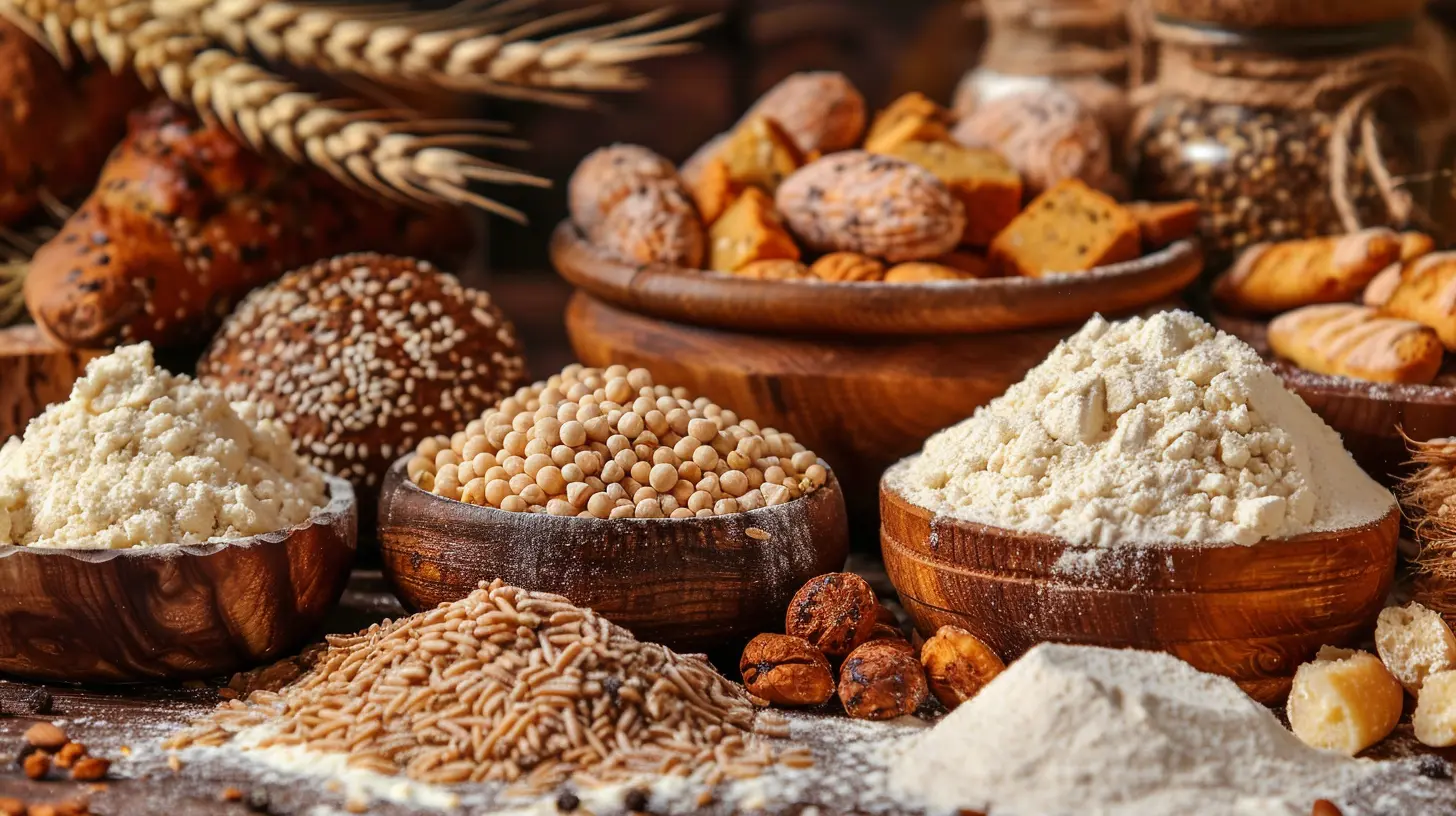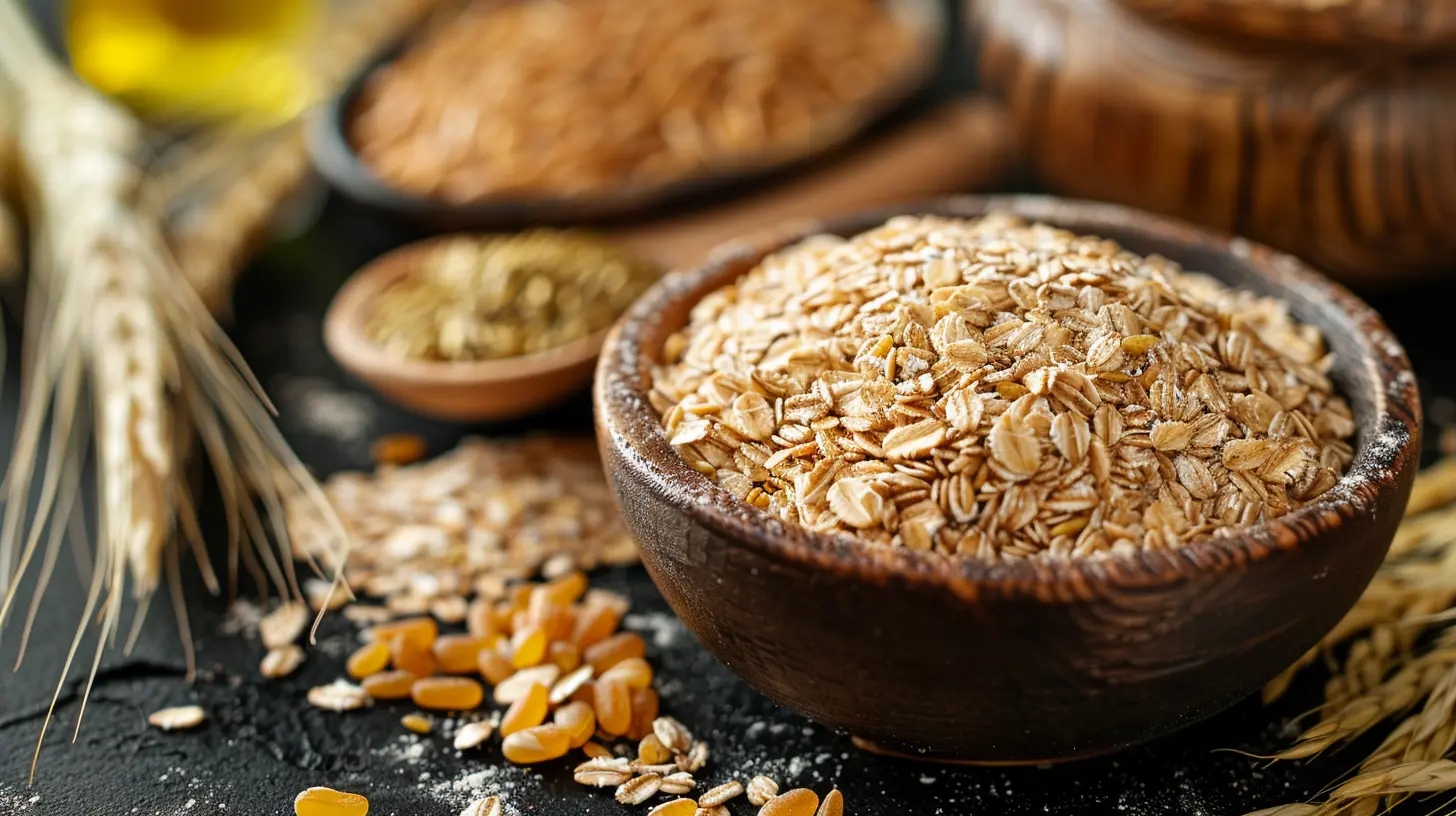Tips for Baking with Organic Ingredients at Home
9 January 2025
Baking is an art, a science, and sometimes, a little bit of magic. But have you ever wondered how you can elevate your homemade goodies while keeping things natural and wholesome? Using organic ingredients might just be the answer! Organic baking is not only good for you and your family, but it's also a great way to support sustainable farming practices. Plus, let’s be real: the flavor is simply unmatched.
In this article, I’ll take you on a journey into the world of organic baking. Whether you’re a seasoned baker or someone who’s just starting out, these tips will help you bake healthier, tastier treats in your own kitchen. So, roll up your sleeves, grab a mixing bowl, and let’s dive in! 
Why Choose Organic Ingredients?
Before we get into the how, let’s talk about the why. What’s the big deal with organic ingredients, anyway? Here’s the scoop:1. Healthier Options: Organic ingredients are free from artificial chemicals, pesticides, and genetically modified organisms (GMOs). That means fewer additives and a more natural product for your body to enjoy.
2. Environmental Benefits: Organic farming practices are designed to protect the soil and reduce pollution. When you choose organic, you’re doing the planet a favor. Talk about baking with love, right?
3. Superior Flavor: It’s not just a cliché — organic ingredients really do pack a punch when it comes to taste. That extra richness and freshness? Totally worth it.
4. No Hidden Nasties: Ever read an ingredients label and felt like you needed a chemistry degree to understand it? With organic, what you see is what you get.
1. Start with Organic Flours
Flour is the backbone of most baked goods, so if you're going organic, this is a great place to start. Organic flours are milled from wheat (or other grains) grown without synthetic fertilizers or pesticides.Pro Tips for Baking with Organic Flour:
- Adjust for Texture: Organic flours can sometimes be more absorbent than conventional ones. You might need to tweak your liquid measurements to get the perfect dough or batter consistency.- Experiment with Variety: Don’t limit yourself to just all-purpose flour. Try organic whole wheat, spelt, or almond flour for a nutty, earthy flavor. They bring a unique personality to your bakes!

2. Use Organic Sweeteners for a Natural Touch
Sugar is a key player in most baking recipes, but there’s no rule that says it has to be the white, processed kind. Organic sweeteners like raw cane sugar, coconut sugar, or even organic honey can bring depth and complexity to your desserts.Why Go Organic with Sweeteners?
- Organic sugars aren’t stripped of their natural molasses content.- They’re free from chemical processing, so you’ll end up with a more natural, caramel-like sweetness in your desserts. Yum!

3. Don’t Forget the Butter and Oils
What’s a moist cake or flaky pie crust without the fats? If you’re using butter or oil in your baking, switch to organic options. Organic butter comes from cows raised on organic feed, and organic oils like coconut, olive, or avocado oil are unrefined and full of nutrients.The Secret to Perfect Bakes Using Organic Fats:
- Room Temperature is Key: Always let your organic butter soften naturally before baking. It’s like giving it a little warm-up before the big game!- Use cold organic butter for things like biscuits or scones to get that melt-in-your-mouth texture.
4. Invest in Organic Dairy and Eggs
Organic milk, cream, and eggs might seem like small changes, but they make a world of difference. Not only are they free from growth hormones and antibiotics, but they also lend a richer taste and texture to your baked goods.Egg-citing Tips for Organic Eggs:
- Always go for free-range, organic eggs whenever possible.- For flaxseed or chia seed fans, these can act as an excellent organic egg replacement for vegan baking!
5. Fresh and Organic Fruits = Next-Level Flavor
Fruits are often a star ingredient in baking. Whether it’s blueberries for your muffins or bananas for your bread, organic fruits bring a burst of vibrant, natural flavor. Bonus: they’re packed with nutrients, too!Tips for Using Organic Fruits in Baking:
- Choose seasonal organic fruits. They’re fresher, cheaper, and kinder to the environment.- Wash them gently but thoroughly. Even organic produce needs a good rinse to get rid of dirt or natural residue.
6. Say Yes to Organic Chocolate and Cocoa
Chocolate lovers, rejoice! Organic chocolate and cocoa powder are a must-have for brownies, cookies, and cakes. These products skip the artificial flavorings and additives, giving you a pure, intense chocolate flavor.Pro Tip:
- Go for organic dark chocolate chips or baking bars with a high percentage of cocoa for a more pronounced flavor in your recipes.7. Leavening Agents: Baking Soda and Powder
Did you know you can find organic baking soda and baking powder? Yep, even these staples can be organic! While they’re not as flashy as other ingredients on this list, they play a critical role in getting your cakes to rise to fluffy, Instagram-worthy heights.8. Don’t Forget the Spices
Cinnamon, nutmeg, vanilla — oh my! Organic spices and extracts are a fabulous way to add flavor to your baked goods. They’re potent, aromatic, and free from synthetic fillers. Trust me, once you switch to organic spices, you won’t go back.Pro Tip for Vanilla:
Whenever possible, use organic vanilla extract instead of imitation vanilla. The difference in aroma and flavor? Night and day!9. Pay Attention to Storage
Okay, so you’ve got all your organic ingredients. Now what? Don’t forget that proper storage is critical to maintaining quality. Organic ingredients can be more sensitive since they don’t contain preservatives. Here’s how to keep them fresh:- Flour, Sugar, and Grains: Store in airtight containers to prevent exposure to moisture and pests.
- Dairy and Eggs: Keep them in the fridge at the right temperature — no one wants spoiled milk in their cake batter!
- Spices: Store in a cool, dark place to preserve their potency.
10. Embrace the Imperfection
Here’s the thing about baking with organic ingredients: it’s not always a walk in the park. Sometimes, your cookies might spread more than expected, or your cake might not rise as dramatically as you hoped. That’s okay! Organic baking is all about experimenting and learning. Besides, isn’t a slightly wonky but utterly delicious homemade cookie better than anything store-bought?Final Thoughts
Baking with organic ingredients isn’t just about whipping up delicious desserts. It’s about embracing a lifestyle that prioritizes health, sustainability, and quality. Sure, it might take a bit of an adjustment at first, but once you taste the difference, you’ll never want to go back. So, the next time you find yourself in the kitchen, challenge yourself to go organic. Who knows? You might just bake the best batch of cookies your family has ever had.Now grab that apron, and let your creativity (and your oven) shine!
all images in this post were generated using AI tools
Category:
Organic FoodsAuthor:

Tiffany Foster
Discussion
rate this article
13 comments
Zephyrian Cummings
While baking with organic ingredients enhances health benefits, it's crucial to balance flavor and texture to avoid compromising the final product.
February 19, 2025 at 5:50 PM

Tiffany Foster
Thank you for your insightful comment! Balancing flavor and texture is indeed key when baking with organic ingredients.
Presley Parker
Mixing kale into cookies? Only for the adventurous baker's soul!
February 4, 2025 at 5:45 PM

Tiffany Foster
Absolutely! Embracing unique ingredients like kale can lead to deliciously surprising results. Happy baking!
Zephyrian O'Brien
Who knew baking with organic ingredients could feel like starring in a cooking show? Just remember: even if your cookies come out looking like abstract art or your bread resembles an edible brick, at least you're keeping it natural. Cheers to kitchen adventures!
January 31, 2025 at 3:33 AM

Tiffany Foster
Thank you for the delightful comment! Embracing the journey of baking with organic ingredients can indeed lead to delicious surprises, regardless of how they look. Cheers to all the kitchen experiments! 🍪✨
Velvet Daniels
Great tips! Baking with organic ingredients not only boosts flavor but also supports a healthier lifestyle. Happy baking!
January 26, 2025 at 4:44 AM

Tiffany Foster
Thank you! I'm glad you found the tips helpful. Happy baking!
Cassidy Horne
Thank you for sharing these insightful tips on baking with organic ingredients! Your suggestions not only enhance the flavor and quality of our baked goods but also promote healthier choices. I look forward to trying these techniques in my own kitchen!
January 21, 2025 at 3:27 PM

Tiffany Foster
Thank you! I'm glad you found the tips helpful, and I hope you enjoy trying them in your baking! Happy cooking!
Theodore Meyers
Great tips! Consider experimenting with different organic flours and sweeteners for unique flavors. Also, don't forget to adjust baking times as needed. Happy baking!
January 17, 2025 at 5:51 AM

Tiffany Foster
Thank you for the suggestion! Experimenting with different flours and sweeteners can definitely enhance flavors. Happy baking to you too!
Bennett Cain
Whisking organic joy into your kitchen? Remember, flour power and kale don’t mix—unless it's a smoothie!
January 13, 2025 at 3:24 PM

Tiffany Foster
Great tip! Incorporating organic ingredients can elevate your baking, just remember to keep flavors in harmony. Happy baking!
Mallory Torres
This article offers fantastic insights for baking with organic ingredients! I appreciate the tips on selecting quality products and adjusting recipes for better flavor. Using organic ingredients not only enhances taste but also promotes healthier eating. Can't wait to try these suggestions!
January 13, 2025 at 5:58 AM

Tiffany Foster
Thank you so much for your kind words! I'm thrilled you found the tips helpful and inspiring. Happy baking with organic ingredients!
Rosalyn Campbell
Embrace organic baking; it enhances flavor and supports sustainable practices!
January 12, 2025 at 3:33 PM

Tiffany Foster
Absolutely! Organic baking not only elevates flavor but also champions a healthier planet. Thank you for the support!
Maria Snyder
Baking with organic ingredients not only enhances flavor but also supports sustainable farming. Always choose fresh, seasonal produce and consider using organic flours and sugars for healthier alternatives. Experiment with natural sweeteners like honey or maple syrup for added taste. Happy baking and enjoy the benefits of going organic!
January 12, 2025 at 5:54 AM

Tiffany Foster
Thank you for your insights! Choosing organic ingredients truly elevates both flavor and sustainability in baking. Happy baking!
Hawk Rogers
Emphasizing organic ingredients elevates nutrition and flavor, promoting sustainable practices while enhancing home-baking experiences.
January 11, 2025 at 5:01 PM

Tiffany Foster
Thank you! Emphasizing organic ingredients truly enriches both nutrition and flavor, making home baking more enjoyable and sustainable.
Arlo Myers
Baking with organic ingredients enhances both flavor and nutrition. Focus on quality over quantity, and experiment with whole grains and natural sweeteners for healthier alternatives. Enjoy the benefits of mindful cooking.
January 11, 2025 at 5:40 AM

Tiffany Foster
Thank you for your insightful comment! I completely agree—prioritizing quality and experimenting with wholesome ingredients can truly elevate both the taste and health benefits of our baked goods. Happy baking!
Dior Warren
Baking with organic ingredients? Count me in! Who knew guilt-free treats could be so fun? Let’s channel our inner pastry chefs and whip up deliciousness that Mother Nature would approve of! Flour power to the organic crowd!" 🍰🌿
January 10, 2025 at 4:27 PM

Tiffany Foster
Absolutely! Embracing organic ingredients not only enhances flavor but also supports a healthier planet. Let’s get creative and enjoy guilt-free baking together! 🌿🍰
MORE POSTS

How Spending Time Alone Supports Personal Mental Growth

How Meditation Can Spark Real Change in Your Health

The Science-Backed Health Benefits of Superfoods

Childhood Asthma: Recognizing Symptoms and Managing the Condition

Signs You’re Experiencing Burnout and How to Cope

Healthy Snack Ideas That Kids Will Love

Embracing Change: Why It's Key to Your Physical Health

Understanding Plaque and How It Affects Your Heart

Overcoming Self-Doubt for a Healthier Lifestyle